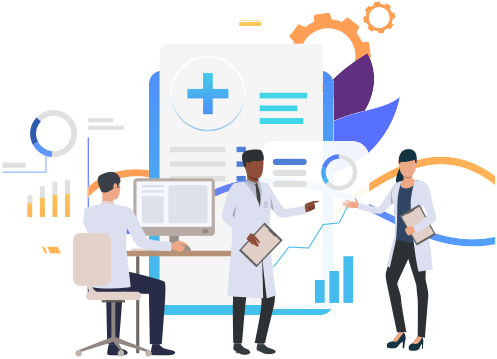
Custom Healthcare Software Development
We create software applications, platforms, and systems that are tailored specifically to the needs and requirements of your healthcare organization. Unlike off-the-shelf software products, custom healthcare software is designed to meet the unique needs of your healthcare organization and can be fully customized to your specifications.
Custom healthcare software development involves a wide range of software products, including electronic health records (EHRs),
telemedicine platforms, medical imaging software, health information exchanges, patient portals, clinical decision support systems,
and more. These products can be designed to address specific challenges or pain points in your healthcare industry, such as improving
patient outcomes, reducing administrative burdens, enhancing data security, and more.
The process of custom healthcare software development typically involves understanding the unique needs and requirements of your
healthcare organization, designing software solutions that address those needs, building and testing the software, and deploying it to
users. This process often involves close collaboration between healthcare experts, software developers, and other stakeholders to
ensure that the software meets the highest standards of quality, security, and usability.
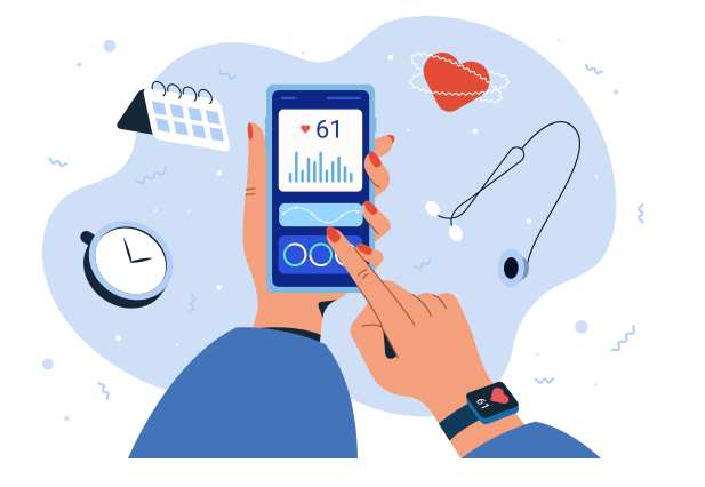
Custom EHR Applications
We offer custom EHR (Electronic Health Record) application development services to manage the electronic health records of patients. EHR applications are designed to store, retrieve, and share patients' clinical and administrative data across different healthcare settings and providers.
EHR applications provide a comprehensive view of the patient's health history, including data from different sources such as labs,
imaging, and pharmacies. EHRs also support patient engagement and enable patients to access their health records, communicate with
their providers, and manage their health remotely.
Custom EHR applications are designed to meet the specific needs of your healthcare organization or medical practice, including
workflows, data collection, and reporting requirements. These applications can be tailored to integrate with different systems and
software applications, such as billing and scheduling systems, to streamline administrative processes and improve operational
efficiency.
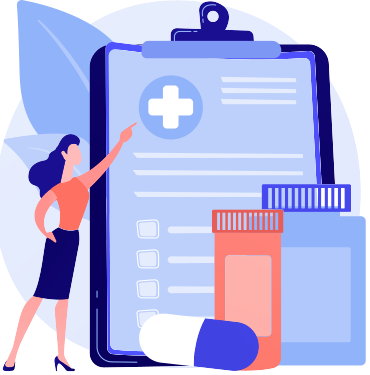
Medical Billing Software
Our medical billing software development services are used by healthcare providers and medical billing companies to manage and process
medical claims and billing information.
Medical billing software automates the billing process, helping healthcare providers and billing companies to create, submit, and
track medical claims electronically. The software also helps in managing patient insurance and billing data, including patient
demographics, insurance coverage, treatment details, and payment history
These software solutions can be customized to meet the specific needs of healthcare providers and medical billing companies, and can
be integrated with other systems and technologies, such as Electronic Health Records (EHRs), to provide a comprehensive view of
patient data.
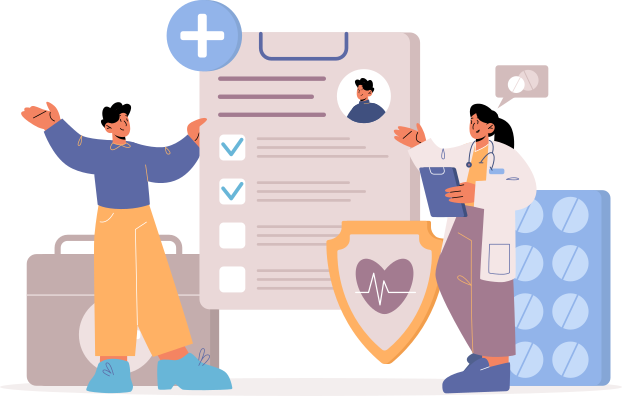
Healthcare Claims Management Software
Healthcare providers and medical billing companies use our healthcare claims management software development services to create, submit,
and track medical claims electronically.
Claims management software automates the claims processing workflow, helping healthcare providers and billing companies to manage and
process medical claims and billing information. The software also helps in managing patient insurance and billing data, including
patient demographics, insurance coverage, treatment details, and payment history.
These software solutions can be customized to meet the specific needs of healthcare providers and medical billing companies, and can
be integrated with other systems and technologies, such as Electronic Health Records (EHRs), to provide a comprehensive view of
patient data.

Patient Portals
We offer custom secure online websites and applications that allow patients to access their health information, communicate with their healthcare providers, and perform various tasks related to their healthcare.
Patient portals provide patients with a convenient and secure way to access their medical records, lab results, and other health
information. They also allow patients to communicate with their healthcare providers, schedule appointments, refill prescriptions, and
pay bills online. Some patient portals also provide educational resources, such as health articles and videos, to help patients manage
their health.
Patient portals can be customized to meet the specific needs of healthcare organizations and can be integrated with other systems and
technologies, such as Electronic Health Records (EHRs), to provide a comprehensive view of patient data.
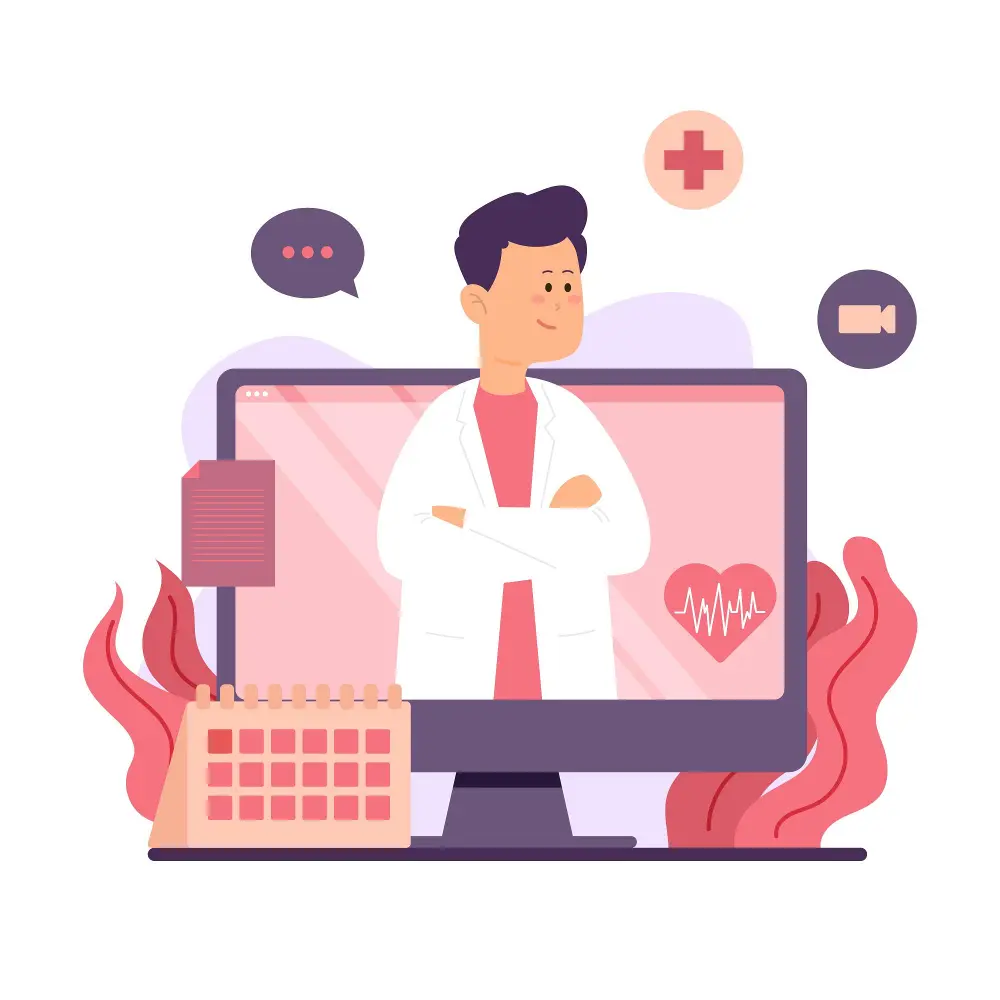
Healthcare Software Product Development
We offer product development services for healthcare domain. This involves creating software applications, platforms, and systems that
serve the healthcare industry. This type of development is focused on improving the quality, efficiency, and effectiveness of healthcare
services through technology
Healthcare software product development can involve a wide range of software products, including electronic health records (EHRs),
telemedicine platforms, medical imaging software, health information exchanges, patient portals, clinical decision support systems,
and more. These products can be used by healthcare providers, patients, insurers, and other stakeholders in the healthcare ecosystem.
The process of healthcare software product development typically involves understanding the needs and requirements of the healthcare
industry, designing software solutions that address those needs, building and testing the software, and deploying it to users. This
process often involves collaboration between healthcare experts, software developers, and other stakeholders to ensure that the
software meets the highest standards of quality, security, and usability
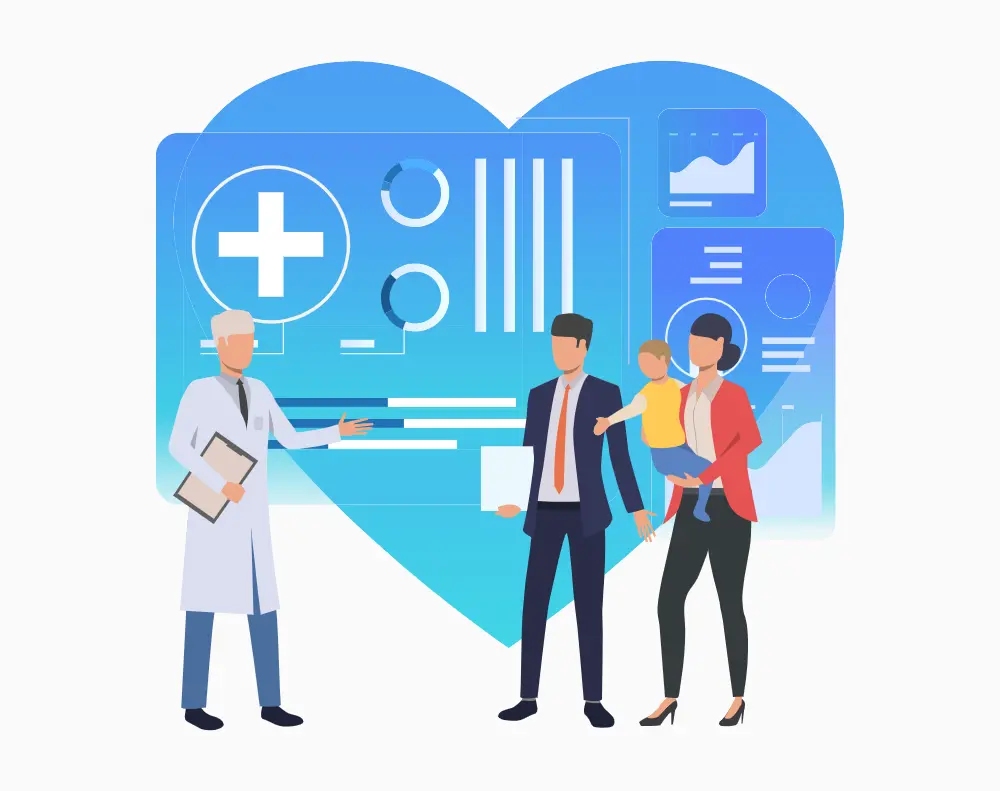
Healthcare Solutions Enhancement
We offer services to improve existing healthcare software applications, platforms, and systems to make them more effective, efficient, and user-friendly. This can involve making changes to the software's features, functionality, user interface, security, performance, and other aspects.
Healthcare solutions enhancement can be driven by a variety of factors, including changing healthcare regulations, evolving patient
needs, advances in technology, and feedback from users. For example, a healthcare organization may need to enhance its electronic
health records (EHR) system to comply with new data privacy regulations, or to improve the user interface to make it easier for
clinicians to access and use patient data.
The process of healthcare solutions enhancement typically involves analyzing the existing software to identify areas for improvement,
designing and implementing changes, testing the changes to ensure they meet quality and performance standards, and deploying the
enhanced software to users. This process may involve collaboration between healthcare experts, software developers, and other
stakeholders to ensure that the enhanced software meets the needs of all users and improves overall healthcare outcomes.
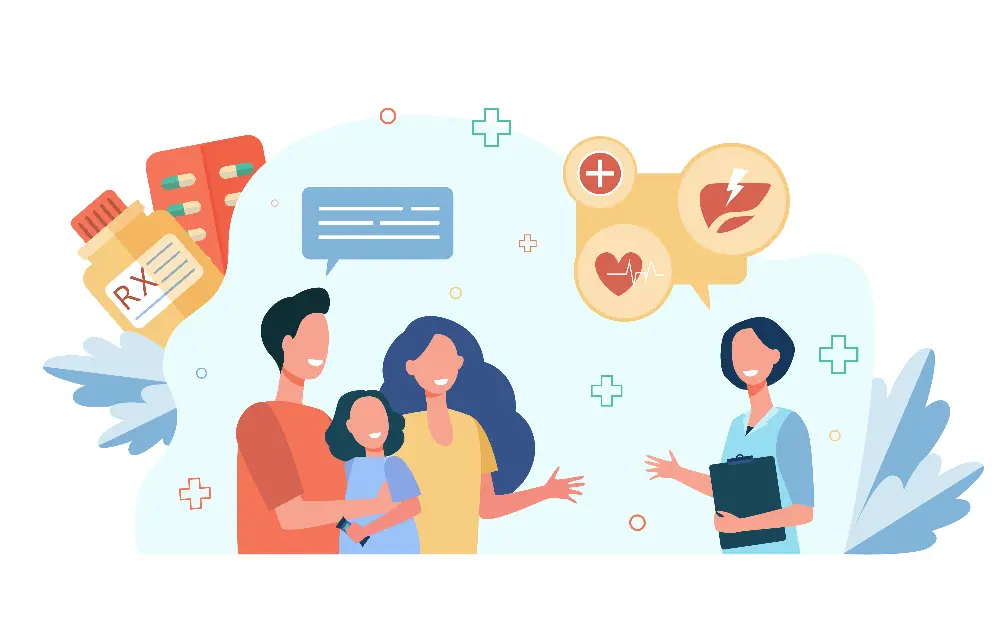
Healthcare Integration
We provide healthcare integration services for the coordination and collaboration of different healthcare systems to improve patient
care and outcomes. This can involve bringing together different healthcare services, such as primary care, specialty care, and
behavioral health services, to ensure that patients receive comprehensive and coordinated care.
Healthcare integration can take many forms, from the integration of electronic medical records to the creation of new care models that
bring together different providers and services. The goal of healthcare integration is to improve the quality of care, reduce costs,
and improve patient satisfaction by ensuring that patients receive the right care, at the right time, from the right provider.
Overall, healthcare integration is an important concept in healthcare delivery that focuses on improving the patient experience and
health outcomes by enhancing communication and coordination among healthcare providers and systems.
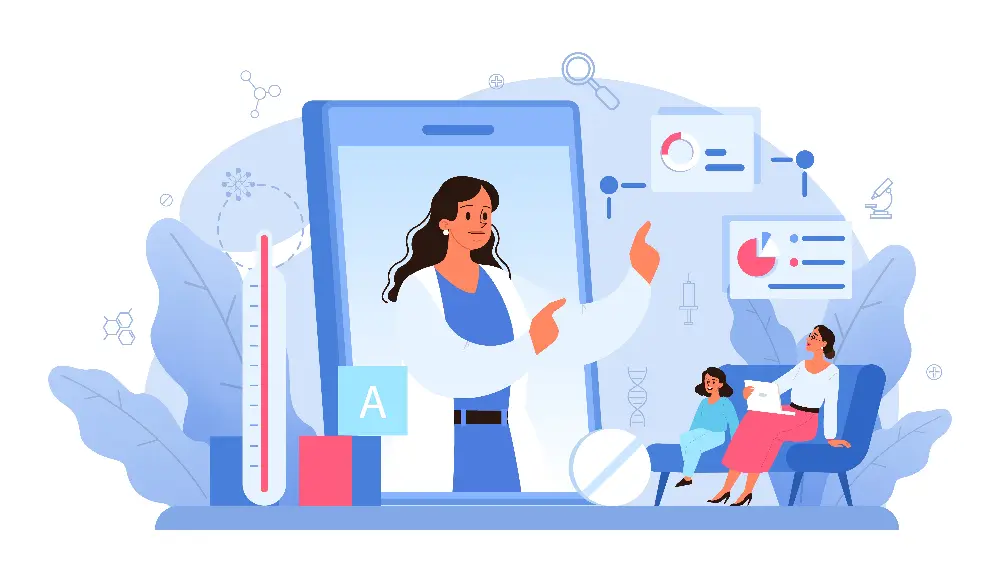
Healthcare Practice Management
We provide healthcare practice management for the administration and coordination of healthcare services in a medical practice or healthcare facility. It encompasses a wide range of activities, including financial management, staffing, billing and coding, patient scheduling and registration, and compliance with regulatory requirements.
We provide healthcare practice management for the administration and coordination of healthcare services in a medical practice or healthcare facility. It encompasses a wide range of activities, including financial management, staffing, billing and coding, patient scheduling and registration, and compliance with regulatory requirements.
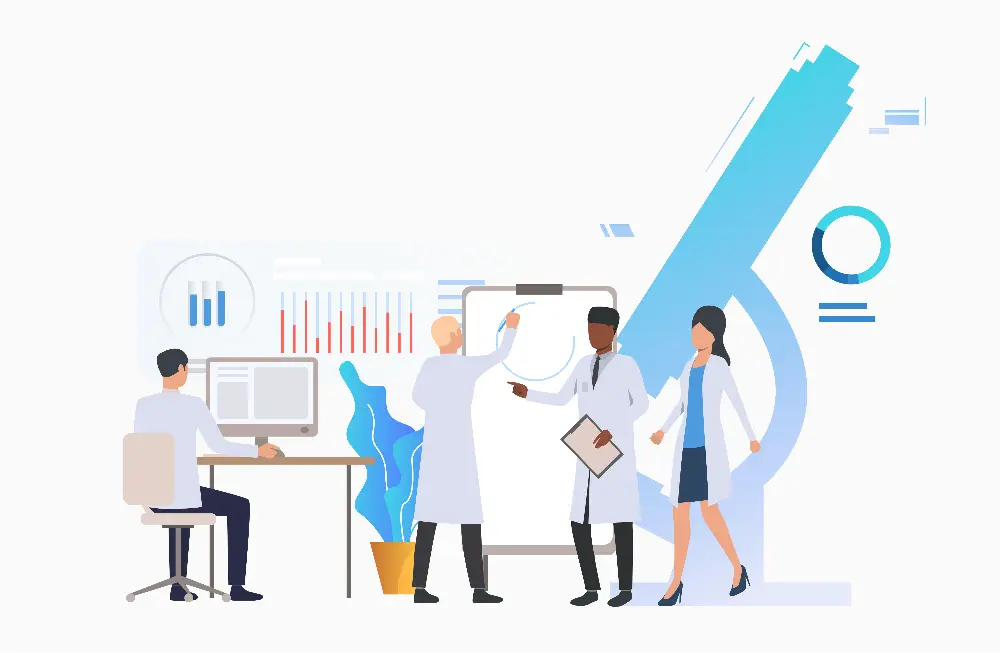
Healthcare Analytics
We provide services in healthcare analytics for collecting, analyzing, and interpreting data from various sources in the healthcare
industry, including electronic health records (EHRs), claims data, and medical imaging. The goal of healthcare analytics is to improve
patient care, reduce costs, and enhance overall efficiency in healthcare systems.
Healthcare analytics uses a variety of techniques, such as predictive modeling, data mining, and statistical analysis, to identify
patterns and trends in healthcare data. These insights can be used to develop evidence-based treatments and interventions, optimize
resource utilization, and improve clinical outcomes.
Healthcare analytics can be applied in various areas of healthcare, such as population health management, quality improvement, and
clinical research. It has become increasingly important in recent years as healthcare systems have moved towards digitization,
resulting in vast amounts of data being generated and collected.
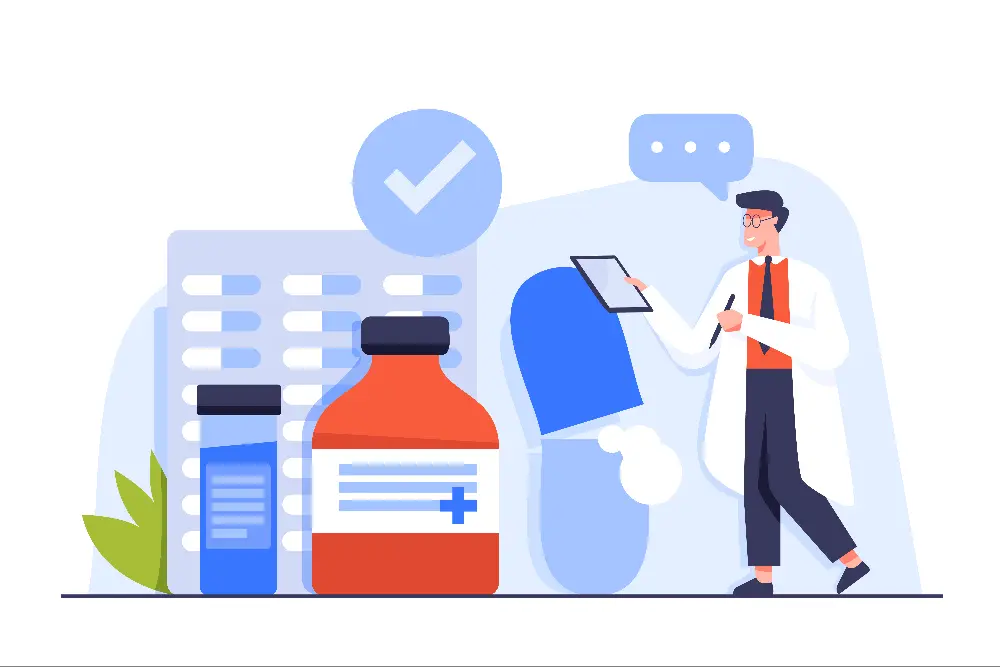
Medicine Management Tools
We provide medicine management tools which are technologies or systems designed to help individuals and healthcare providers manage medications effectively. These tools can range from simple pill organizers to sophisticated electronic health records and medication management software.
Medicine management tools can improve patient adherence, reduce medication errors, and increase patient safety by providing accurate information, reminders and alerts. They also save time for healthcare providers and can improve the overall quality of care.
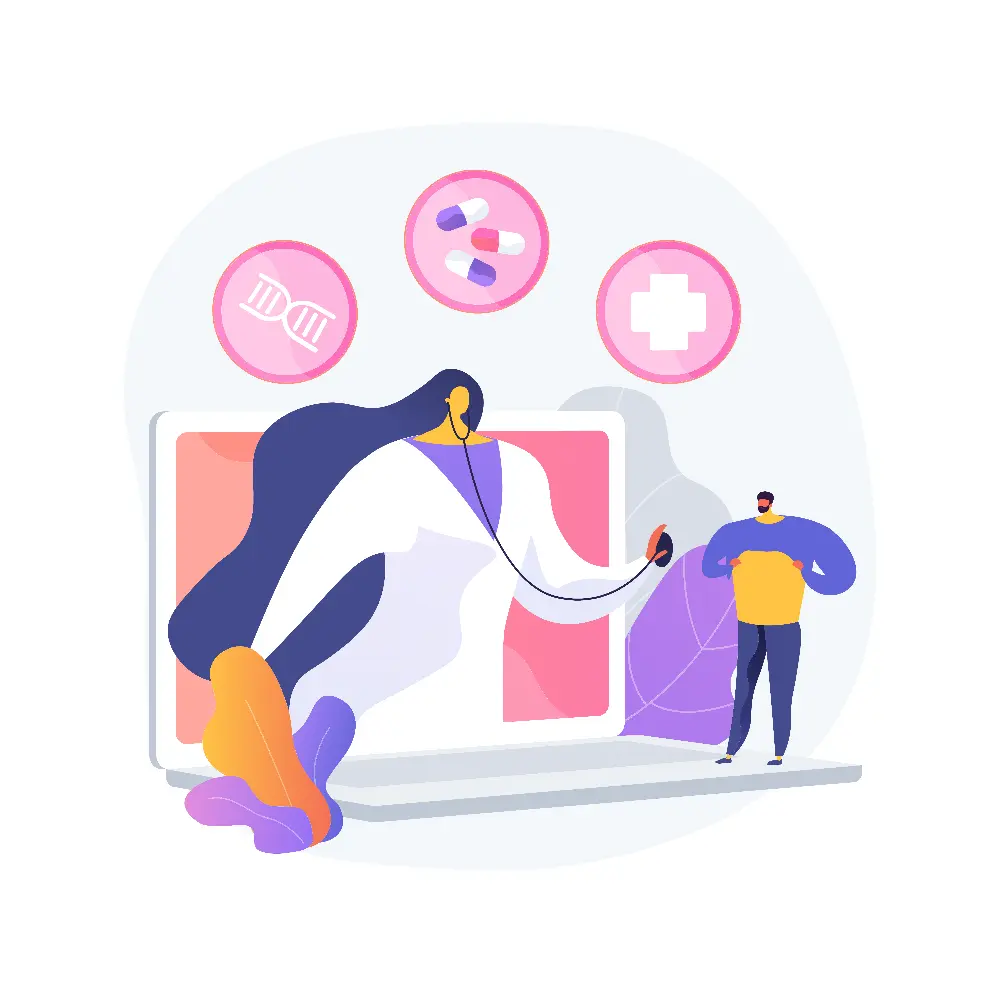
Patient Care Software
We offer patient care software, which is also known as healthcare information systems or clinical information systems, which is a type
of software that is designed to help healthcare providers manage patient care, including patient records, appointments, billing, and
other administrative tasks.
This software typically includes features such as electronic health records (EHRs) or electronic medical records (EMRs), which allow
healthcare providers to access patient information and medical history quickly and efficiently. Other common features may include
scheduling and appointment management, medication management, clinical decision support tools, and billing and insurance management.
Patient care software is used by a variety of healthcare providers, including hospitals, clinics, private practices, and other
healthcare organizations. It is designed to improve the quality of patient care, streamline administrative processes, and reduce the
risk of medical errors.
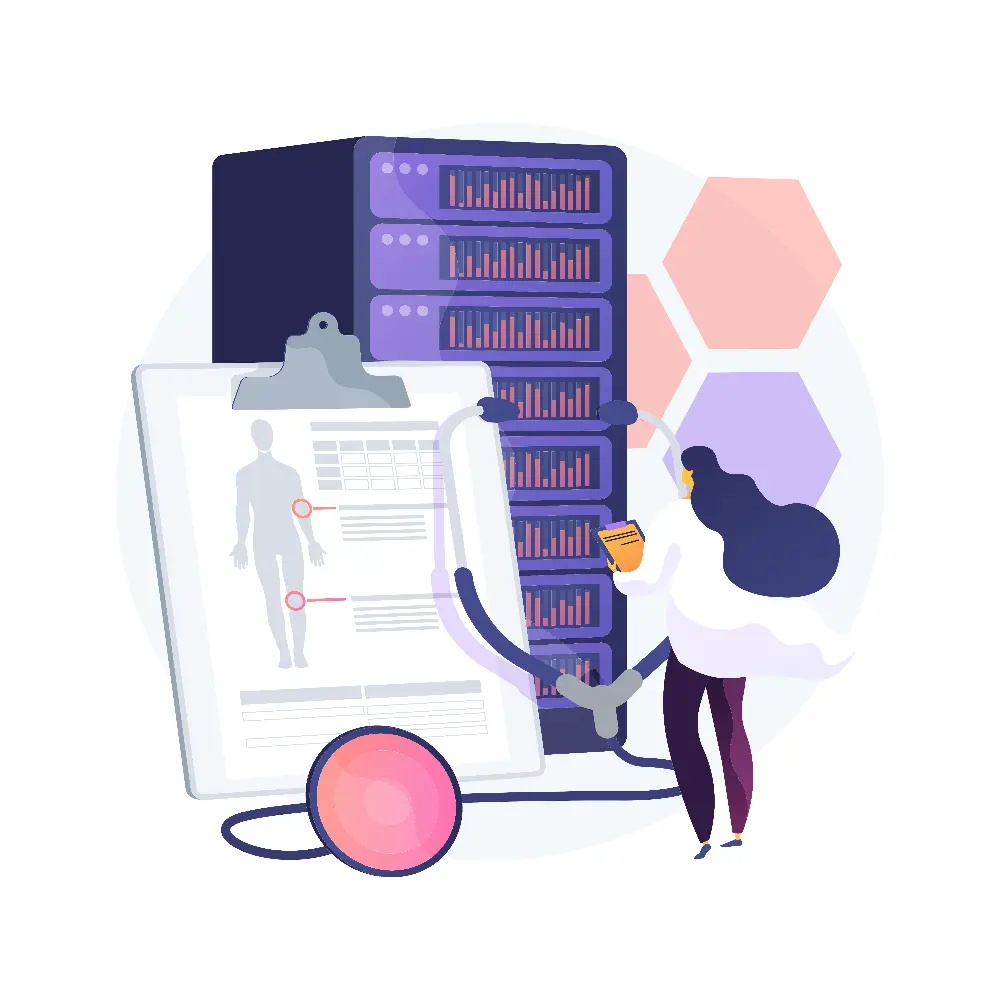
Healthcare Data Management
We provide healthcare data management which is a process of collecting, storing, organizing, analyzing, and using data in the healthcare industry. It involves managing various types of data, including patient data, clinical data, financial data, and administrative data.
Effective healthcare data management is crucial for providing high-quality care, improving patient outcomes, and reducing costs. It involves a variety of tasks, such as ensuring the accuracy and completeness of data, protecting patient privacy and confidentiality, and making data available to authorized personnel in a timely and secure manner.
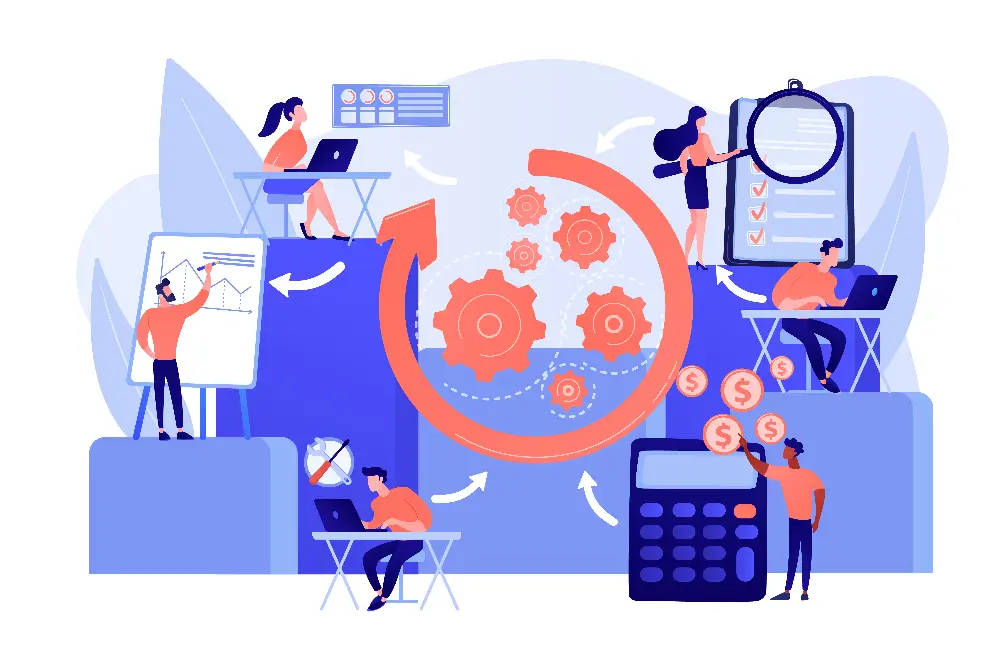
Healthcare Process Management
We offer healthcare process management for the practice of optimizing and improving the processes involved in delivering healthcare
services to patients. It involves analyzing and improving every step in the healthcare delivery process, from patient intake to
discharge, in order to provide better quality care, improve efficiency, and reduce costs.
Overall, healthcare process management is essential for delivering high-quality, efficient, and cost-effective healthcare services to patients.
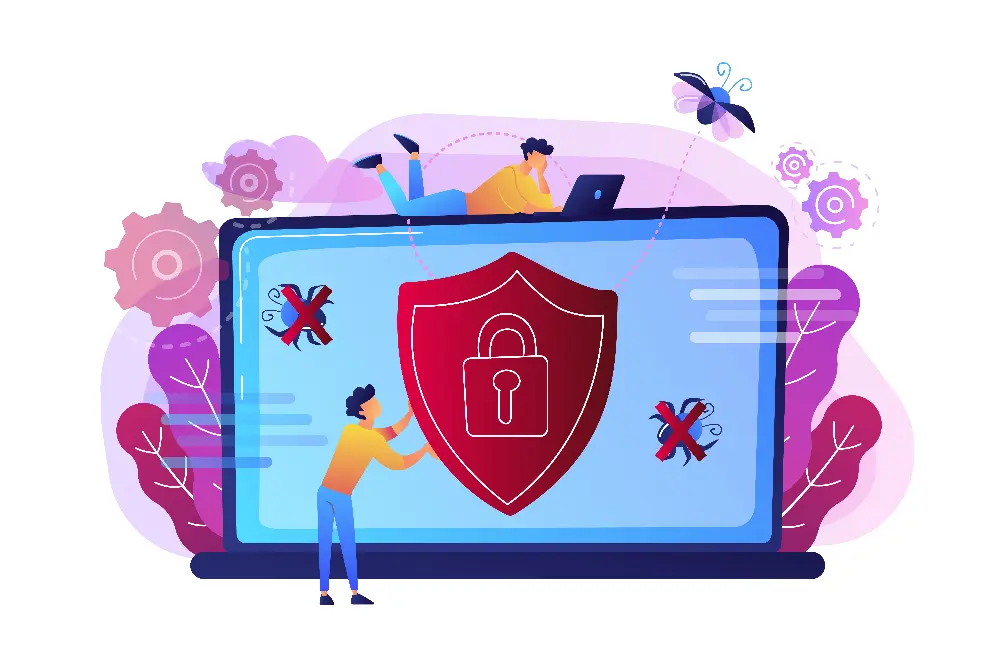
Health Cyber Security
We provide health cyber security for the protection of healthcare data, systems, and networks from unauthorized access, theft, and cyber
attacks. Healthcare organizations collect and store a vast amount of sensitive information about patients, including personal and
medical information, making them attractive targets for cyber criminals.
Overall, health cyber security is essential for protecting healthcare data, systems, and networks from cyber threats and ensuring that patients receive safe and effective care.
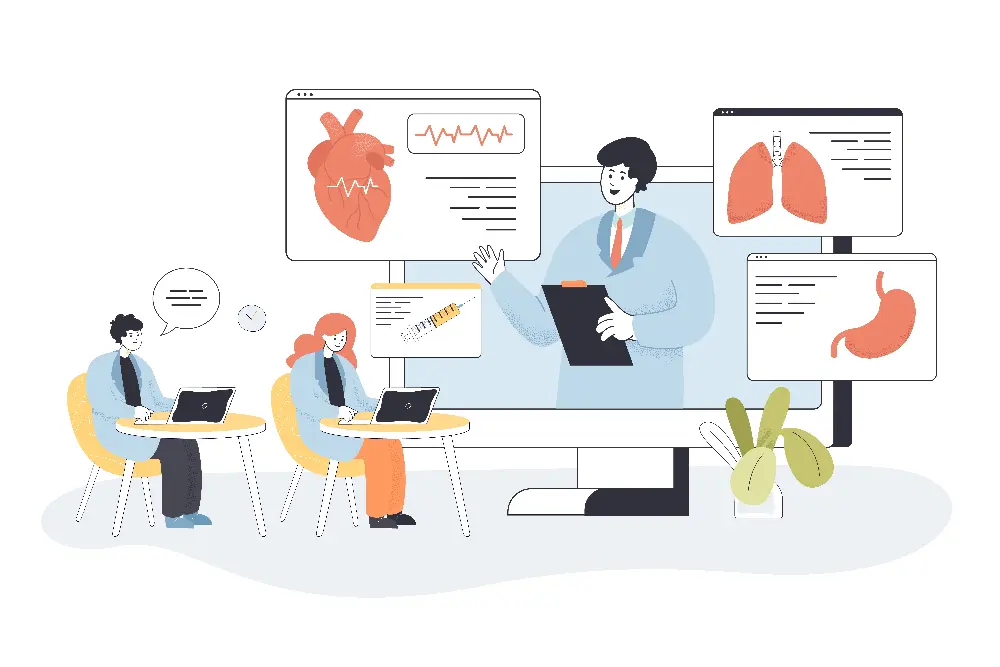
Healthcare Software Integrations
We offer healthcare software integrations for the process of connecting different healthcare software applications or systems to work
together seamlessly. Many healthcare organizations use multiple software applications to manage various aspects of patient care, such as
electronic health records (EHRs), billing systems, and clinical decision support tools. Integrating these systems can help streamline
operations, reduce errors, and improve patient outcomes.
Overall, healthcare software integrations are essential for providing high-quality, efficient, and effective care to patients. By connecting different healthcare software applications and systems, healthcare organizations can improve operations, reduce errors, and enhance patient outcomes.
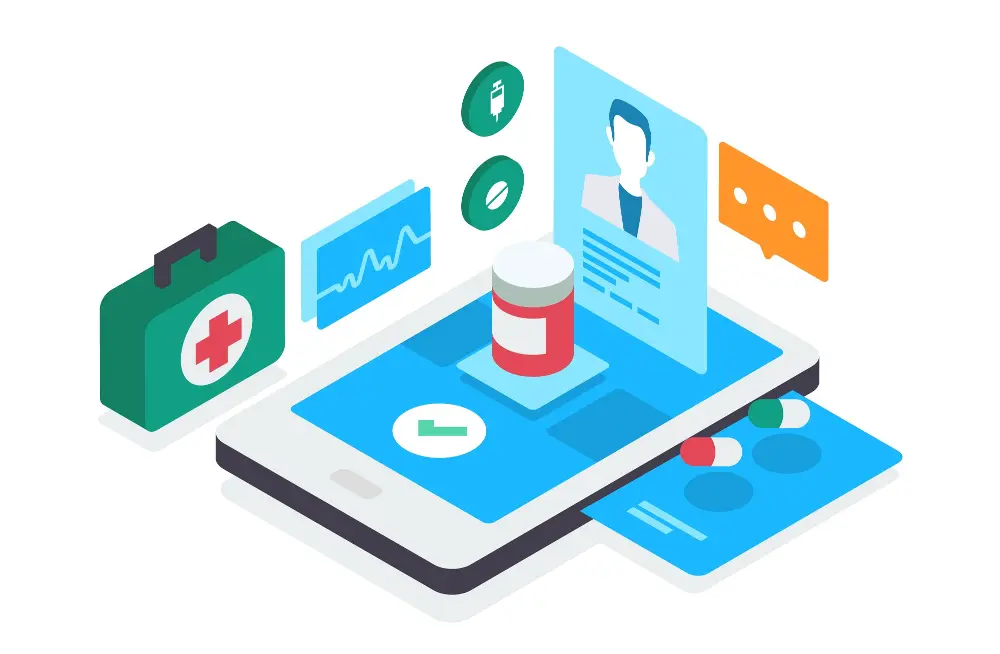
Telemedicine Apps
We provide telemedicine apps which are digital platforms that allow patients to consult with healthcare providers remotely, using video conferencing or other communication technologies. These apps enable patients to access medical services from the comfort of their own homes or any location with internet access, without having to physically visit a doctor's office or clinic.
Telemedicine apps offer a wide range of services, including virtual consultations, remote monitoring, medication management, and
mental health counseling. Patients can use these apps to schedule appointments with doctors or other healthcare professionals, receive
medical advice, get prescriptions, and access their medical records.
Telemedicine apps are becoming increasingly popular due to their convenience, accessibility, and cost-effectiveness. They offer an
alternative to traditional in-person healthcare visits and can improve access to medical care, especially for individuals living in
remote or un reserved areas.
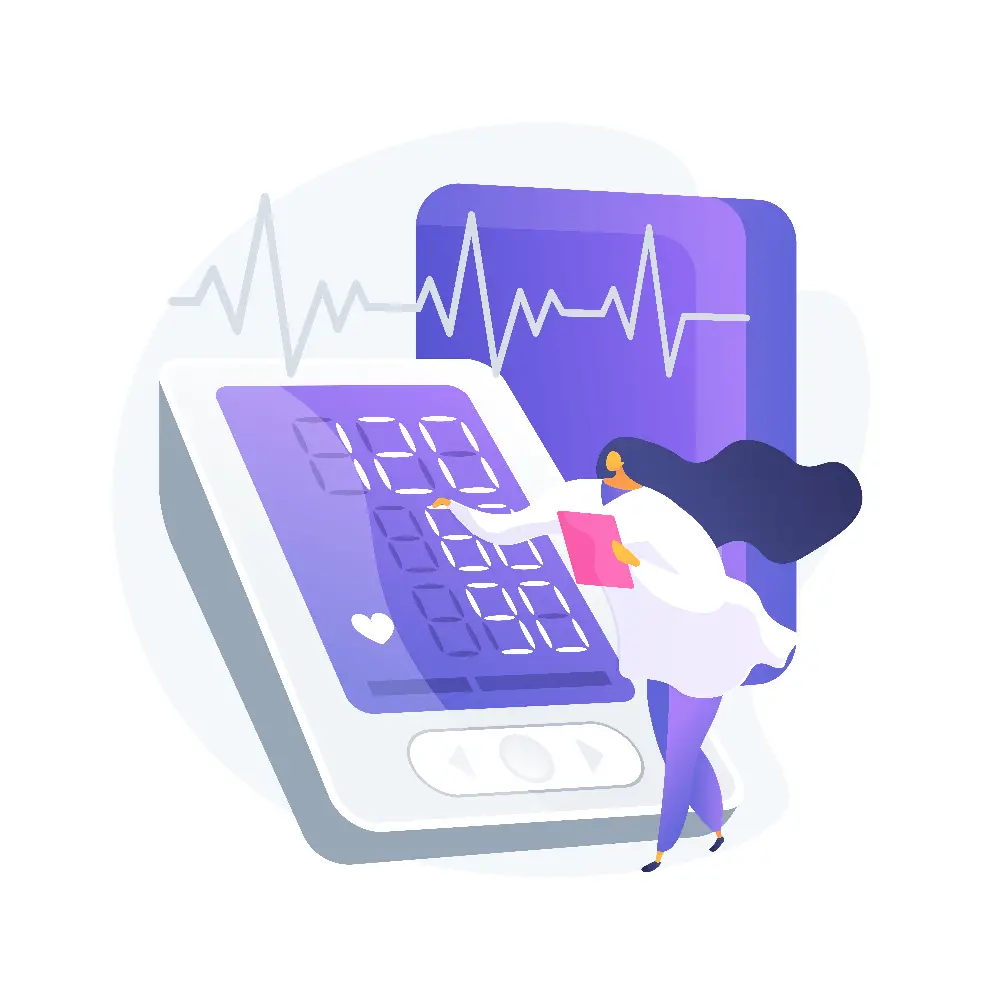
Custom EMR Applications
We offer custom EMR (Electronic Medical Record) applications which are software solutions that are specifically designed and developed for the needs of a particular healthcare organization or medical practice. These applications are used to manage patient medical records, including clinical and administrative data, such as patient demographics, medical histories, diagnoses, treatments, lab results, and billing information.
Custom EMR applications are tailored to meet the specific needs and requirements of a healthcare organization or medical practice,
which may vary depending on their size, specialty, workflows, and regulatory compliance needs. They are typically built using modular
and scalable architectures, enabling the integration of different features and functionalities as needed, such as patient portals,
scheduling, e-prescribing, and reporting.
Custom EMR applications offer several benefits, including improved efficiency, productivity, and patient care. By streamlining
administrative tasks and reducing manual data entry, healthcare providers can focus more on patient care and spend less time on
paperwork. Additionally, custom EMR applications can help healthcare organizations meet regulatory compliance requirements, such as
HIPAA, by ensuring data security and privacy.
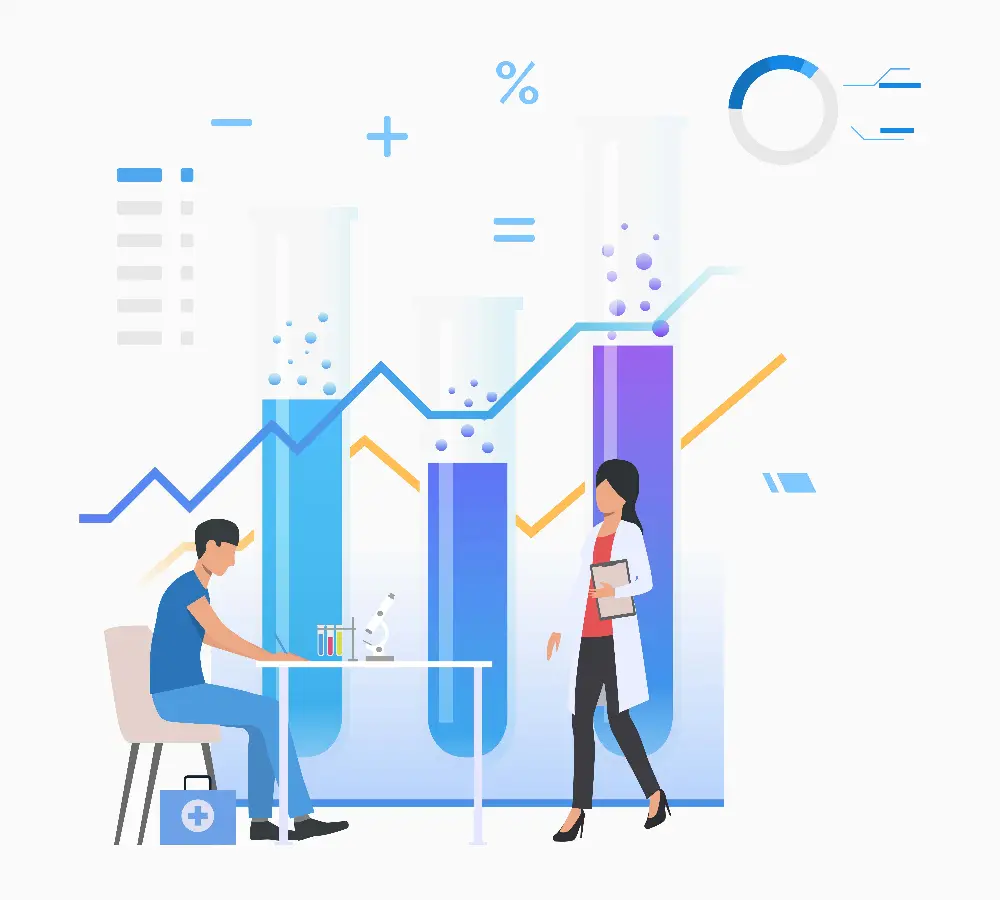
Healthcare Data Analytics Solutions
We provide healthcare data analytics solutions which are software applications and technologies designed to collect, store, analyze, and
visualize healthcare-related data. These solutions use various data sources, such as Electronic Health Records (EHRs), medical claims,
and financial data to help healthcare organizations and providers make informed decisions and improve patient outcomes.
Some examples of healthcare data analytics solutions include predictive analytics, clinical decision support systems, population health management tools, and revenue cycle management software. These solutions can be customized to meet the specific needs of healthcare organizations and providers, and can be integrated with existing systems and technologies to provide a comprehensive view of patient data.
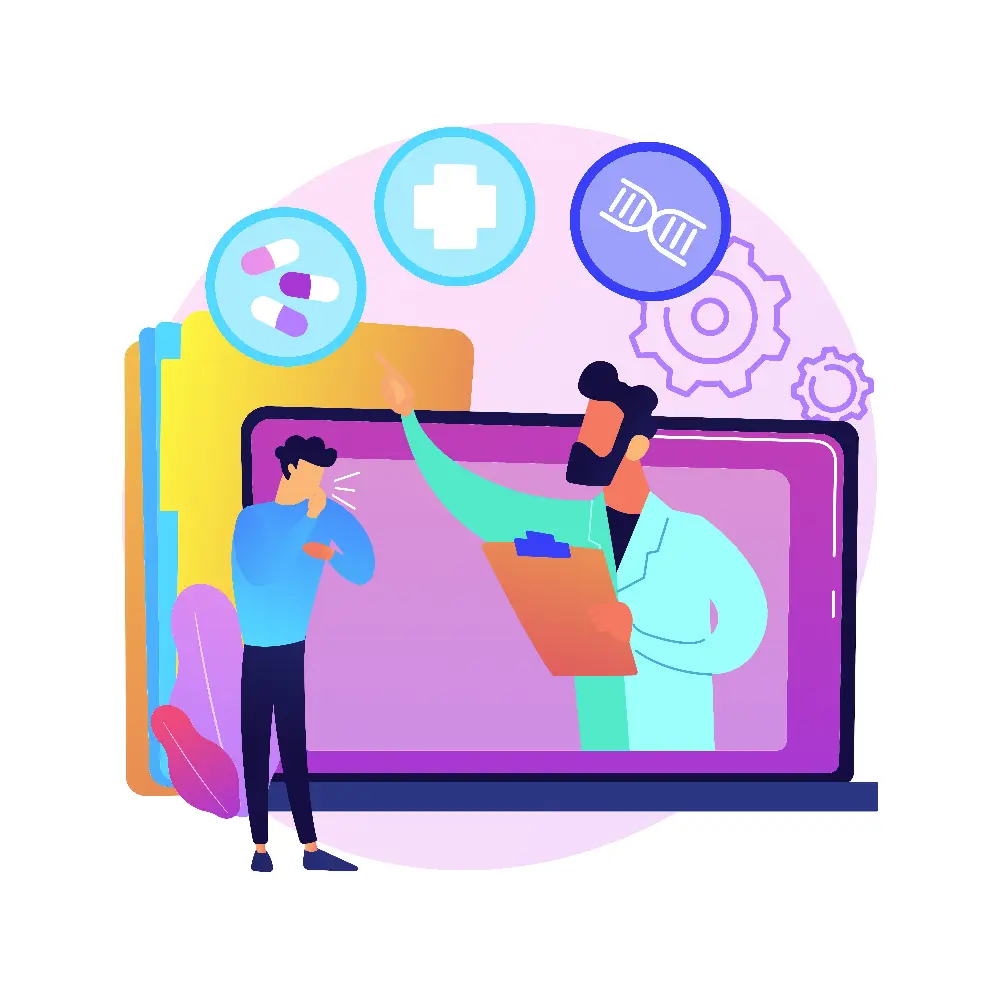
Patient Portals
We provide patient portals which are secure online websites or applications that allow patients to access their health information,
communicate with their healthcare providers, and perform various tasks related to their healthcare.
Patient portals provide patients with a convenient and secure way to access their medical records, lab results, and other health information. They also allow patients to communicate with their healthcare providers, schedule appointments, refill prescriptions, and pay bills online. Some patient portals also provide educational resources, such as health articles and videos, to help patients manage their health.
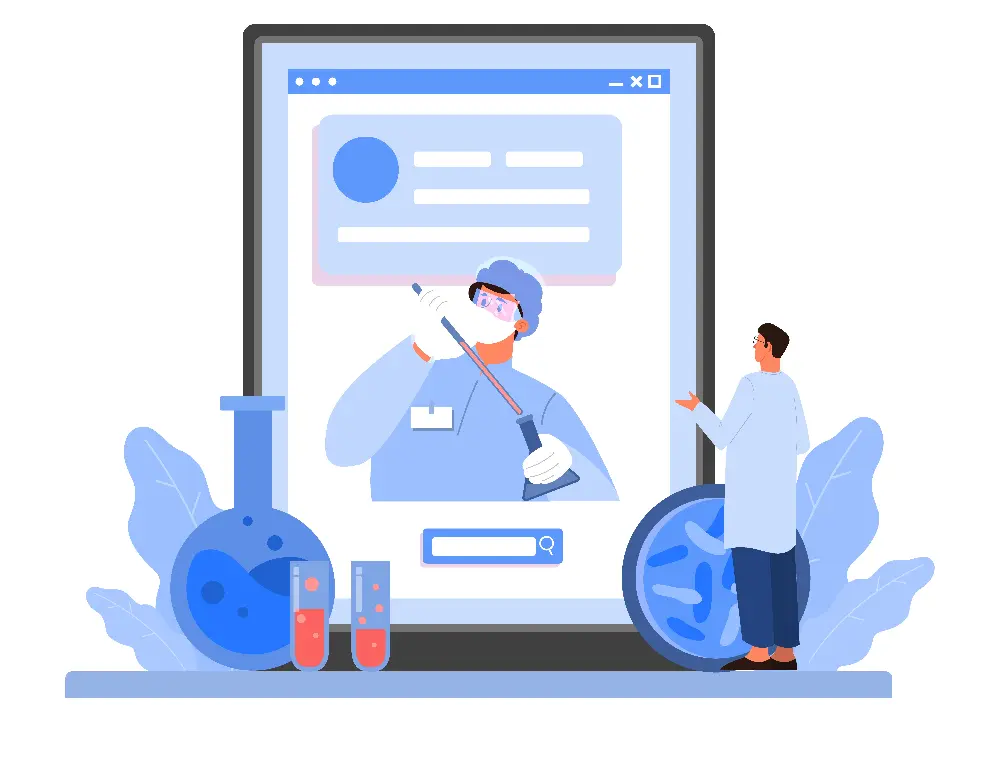
Provider Portals
We offer provider portals which are secure online websites or applications that allow healthcare providers to access patient information, manage appointments, and perform various tasks related to patient care.
Provider portals provide healthcare providers with a convenient and secure way to access patient information, including medical records, test results, and treatment plans. They also allow providers to communicate with patients, schedule appointments, and manage billing and administrative tasks. Provider portals may also include tools to help providers manage their practice, such as analytics and reporting tools.
.webp)
Assistive Technology Software Solutions
We provide assistive technology software solutions which are computer programs or applications designed to assist individuals with
disabilities or special needs to perform tasks that they may otherwise find challenging or impossible to do. These solutions can help
individuals with a wide range of disabilities, including visual impairments, hearing impairments, mobility impairments, cognitive
impairments, and communication difficulties.
Assistive technology software solutions can be customized to meet the specific needs of individuals with disabilities or special needs. They can be used in a variety of settings, including schools, workplaces, and homes. Examples of assistive technology software solutions include JAWS, Dragon NaturallySpeaking, and Tobii Dynavox.
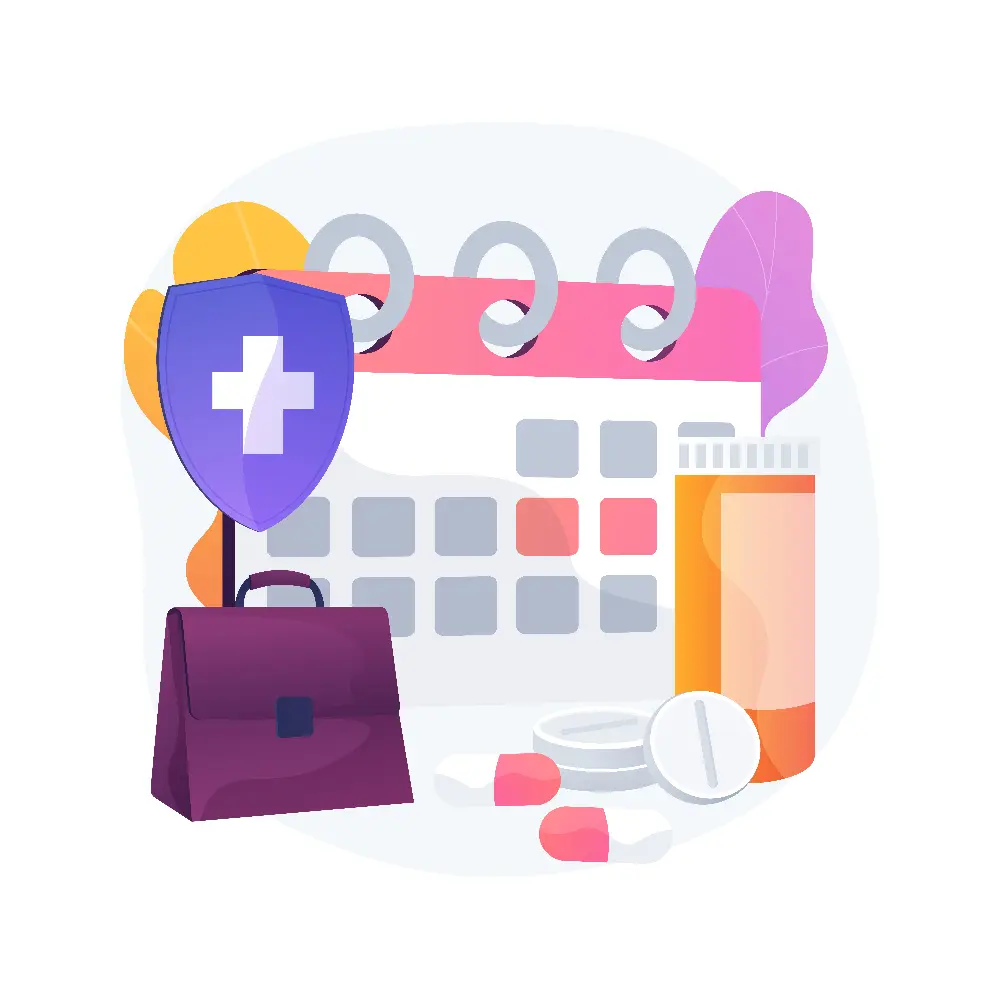
Medical Scheduling
We provide medical scheduling for the process of scheduling appointments, procedures, and other medical events for patients in a healthcare setting. Medical scheduling involves coordinating the availability of healthcare providers and resources, such as exam rooms, equipment, and staff, to ensure that patients receive timely and appropriate care.
Medical scheduling software is a type of software designed to automate the medical scheduling process, helping healthcare organizations to schedule appointments more efficiently and effectively.
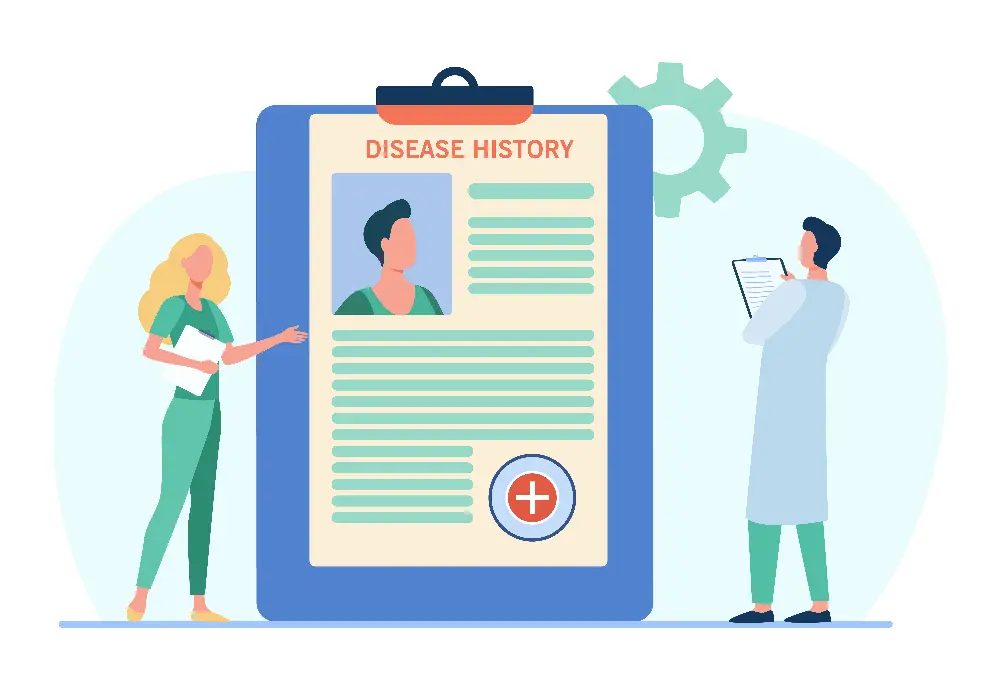
Medical Charting
We provide medical charting, also known as medical documentation or medical recordkeeping, for the process of recording patient
information and medical history in a structured format. Medical charting is an essential part of healthcare, as it helps healthcare
providers to document and track patient care over time.
Medical charting can be done on paper or electronically, with Electronic Health Records (EHRs) being the most common method used today. EHRs allow healthcare providers to record and access patient information in a secure, electronic format. Medical charting is essential for ensuring that patients receive high-quality, coordinated care, and it also plays a critical role in medical research and quality improvement initiatives.
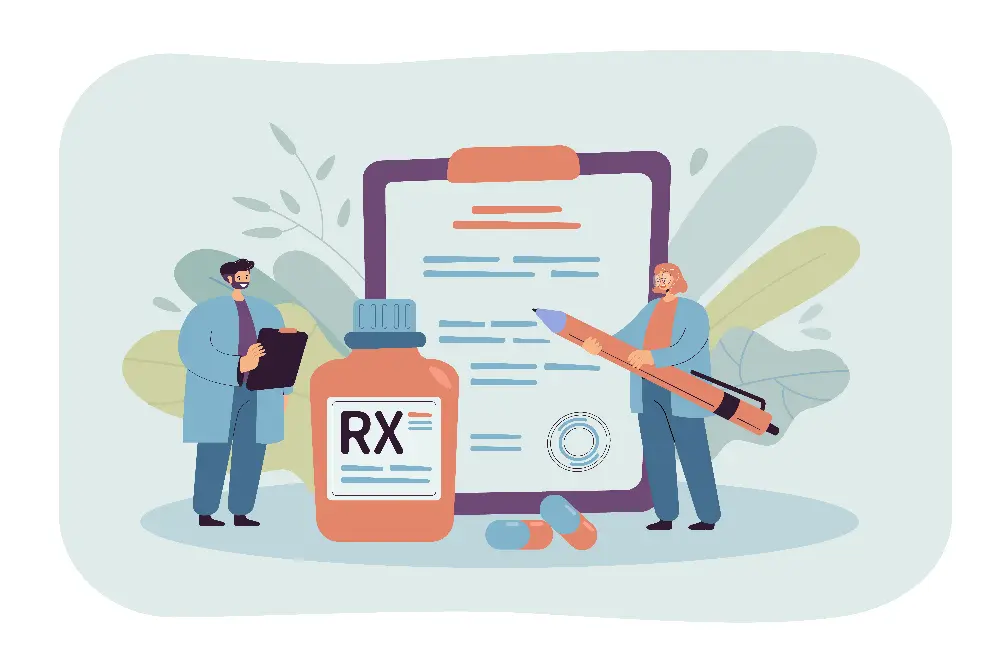
Medical Billing Module
We offer medical billing module which is used in medical billing software to manage the billing and payment process for healthcare services. Medical billing modules can be standalone software applications or part of a larger Electronic Health Record (EHR) system.
Medical billing modules help healthcare providers to manage their billing and payment processes more efficiently and effectively, reducing errors and improving revenue cycle management. Medical billing modules can also help healthcare providers to stay up-to-date with changing billing and payment regulations and requirements. Examples of medical billing software that include medical billing modules include AdvancedMD, Kareo, and Athenahealth.
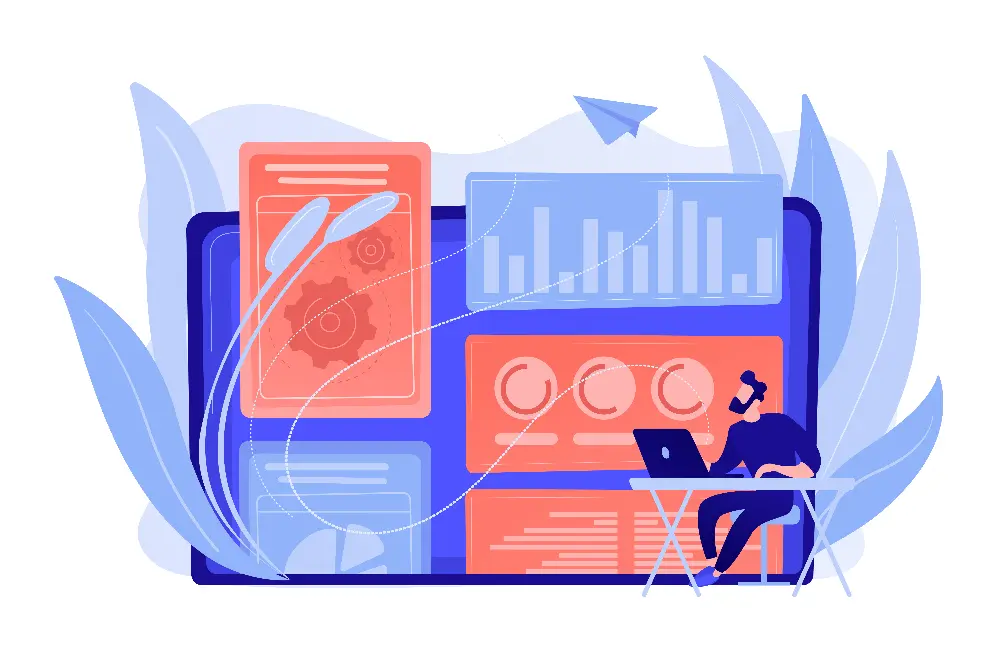
Remote Diagnostics Systems
We provide remote diagnostics systems which allows healthcare providers to monitor and diagnose patients remotely, without requiring
them to be physically present in a healthcare facility. Remote diagnostics systems use various technologies, such as telemedicine and
mobile health applications, to enable remote patient monitoring and diagnosis.
Remote diagnostics systems can be used in a variety of healthcare settings, such as hospitals, clinics, and home healthcare. They can
be used to monitor a wide range of health conditions, such as chronic diseases, infectious diseases, and mental health conditions.
Remote diagnostics systems typically involve the use of medical devices, such as blood pressure monitors, glucose meters, and
electrocardiogram machines, that are connected to the internet and can transmit data in real-time to healthcare providers. Healthcare
providers can then use this data to monitor patient health status and make informed decisions about diagnosis and treatment.
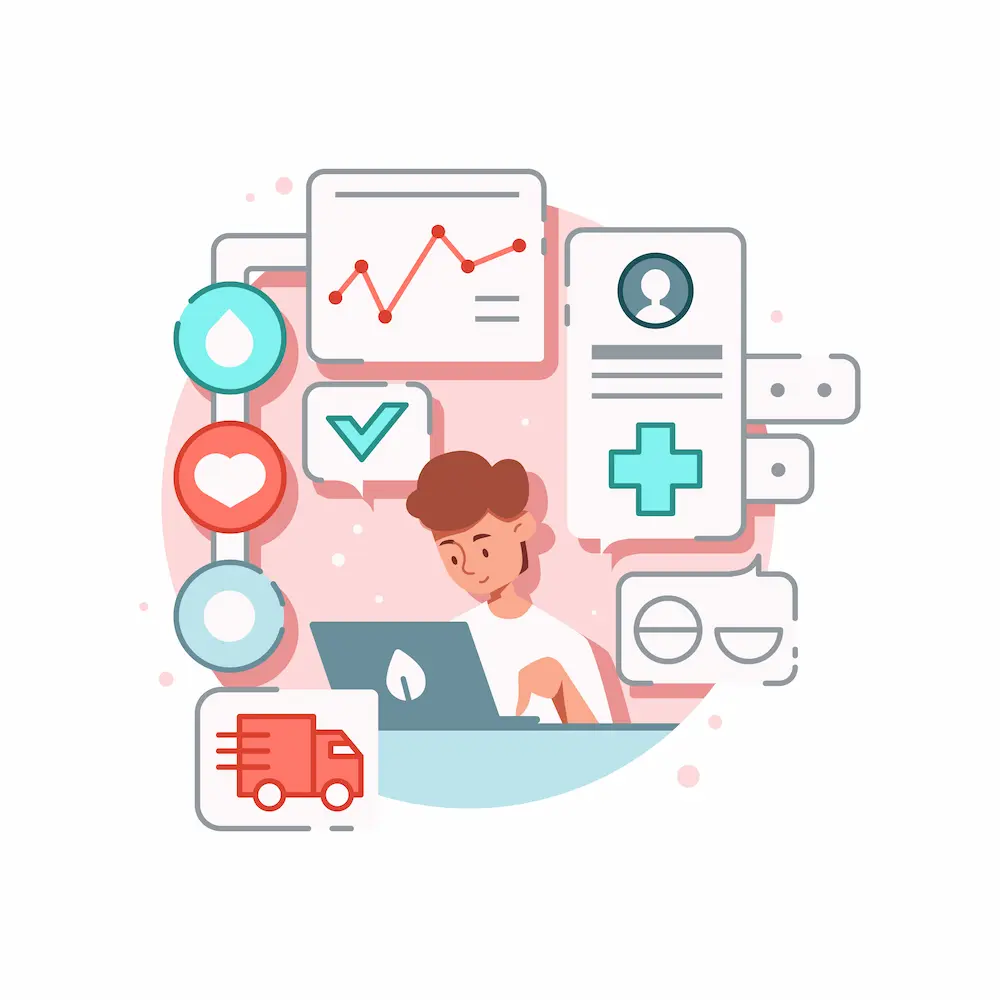
Healthcare Data Analytics Solutions
We provide healthcare data analytics solutions which is used to collect, analyze, and interpret healthcare data to support decision-making, improve patient outcomes, and optimize healthcare operations. Healthcare data analytics solutions typically involve the use of advanced analytics techniques, such as machine learning, predictive analytics, and natural language processing, to extract insights from large volumes of healthcare data.
Healthcare data analytics solutions can be used in a variety of healthcare settings, such as hospitals, clinics, and health systems. They can be used to address a wide range of healthcare challenges, such as improving patient outcomes, reducing healthcare costs, and optimizing resource utilization.
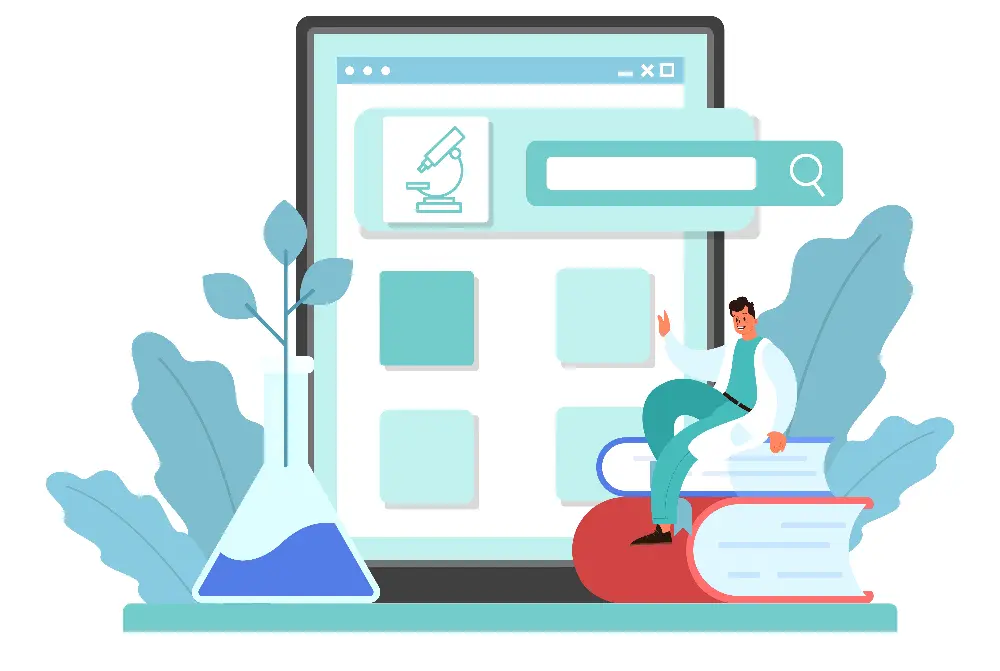
Continued Medical Education Platforms
We offer continued Medical Education (CME) platforms which provide healthcare professionals with access to a variety of educational
resources and activities to maintain and improve their knowledge, skills, and performance in their field. CME platforms are typically
used to meet the continuing education requirements of healthcare professionals, such as physicians, nurses, and pharmacists, and to
support their ongoing professional development.
CME platforms offer a variety of educational resources, such as online courses, webinars, podcasts, and e-books, covering a wide range
of topics in healthcare. These resources are designed to be interactive and engaging, using multimedia content, case studies, and
quizzes to help healthcare professionals reinforce their learning.
CME platforms are typically designed to be flexible and accessible, allowing healthcare professionals to access educational resources
and complete activities at their own pace and on their own schedule. Some CME platforms also offer personalized learning pathways,
tailored to the individual needs and interests of healthcare professionals.
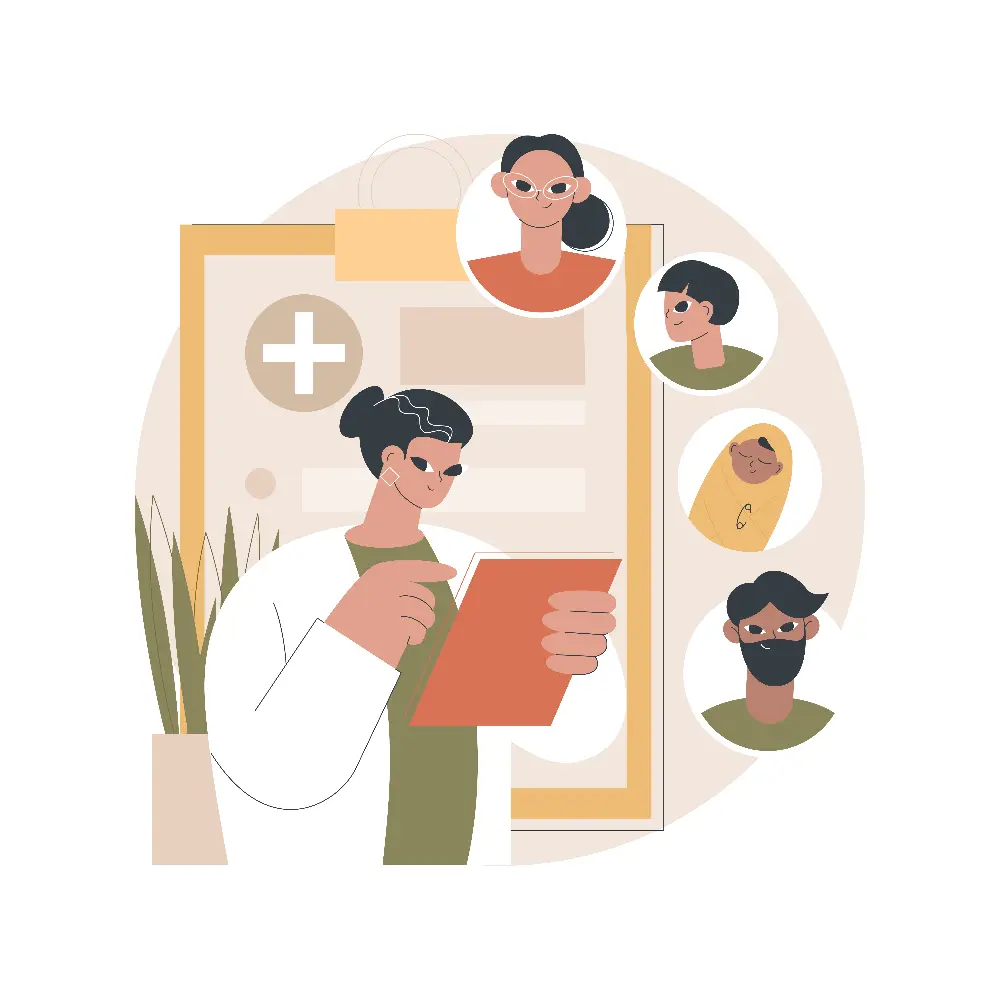
Healthcare CRMS
We provide healthcare Customer Relationship Management (CRM) systems which are designed to help healthcare organizations manage their interactions with patients and other stakeholders. Healthcare CRM systems provide a centralized platform for managing patient information, communication, and engagement across different channels, such as email, phone, and social media.
Healthcare CRM systems typically offer a range of features and functionalities, such as patient appointment scheduling, patient data
management, marketing automation, and patient engagement tools. These tools enable healthcare providers to personalize patient
communications, track patient interactions and feedback, and improve patient experience and satisfaction.
Healthcare CRM systems can be used in a variety of healthcare settings, such as hospitals, clinics, and health systems. They can be
used to support a wide range of healthcare functions, such as patient acquisition and retention, patient education and support, and
healthcare analytics and reporting.
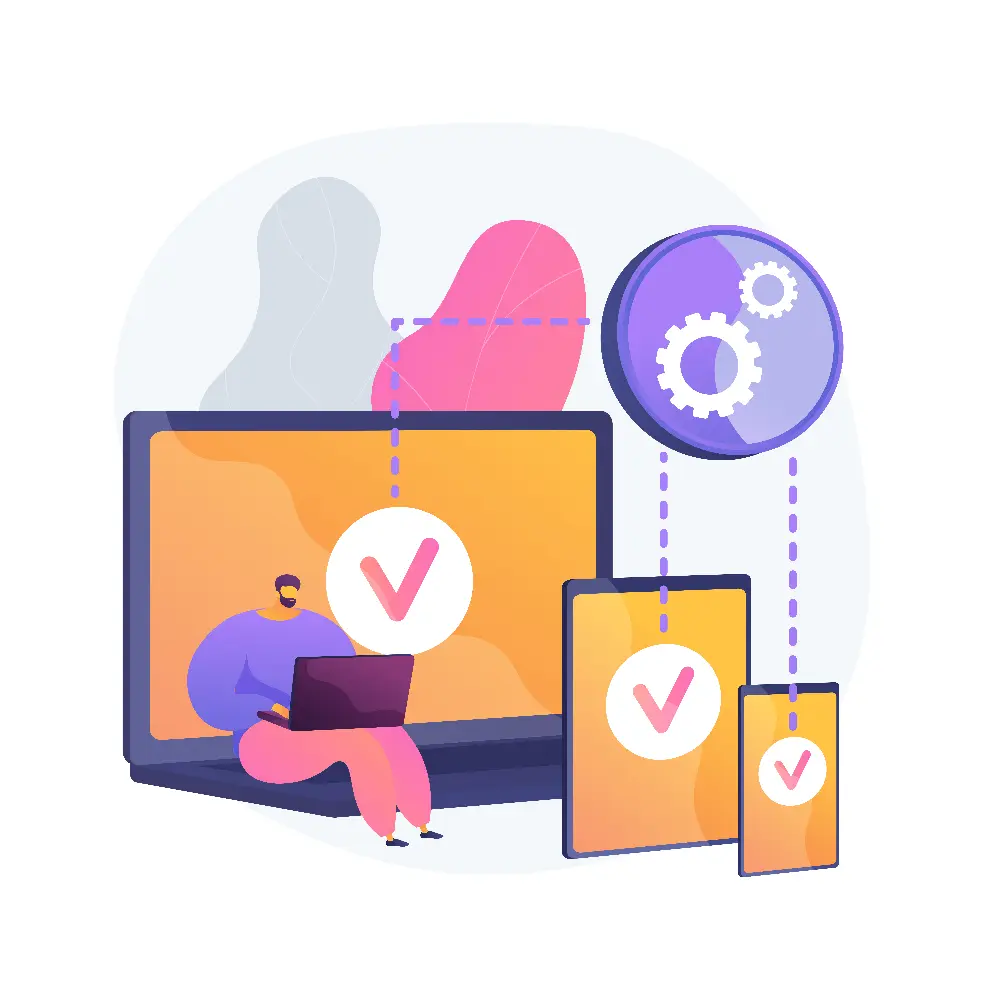
Mobile Patient Monitoring Platforms
We provide mobile patient monitoring platforms which are designed to help healthcare providers remotely monitor patients' health status
and provide care outside of traditional clinical settings. These platforms typically use mobile devices and wearables to collect patient
health data, such as vital signs, activity levels, and medication adherence, and transmit it securely to healthcare providers for
analysis and decision-making.
Mobile patient monitoring platforms can be used in a variety of healthcare settings, such as hospitals, clinics, and home healthcare.
They can be particularly useful for managing chronic conditions, such as diabetes and heart disease, and for monitoring patients with
complex care needs, such as those with multiple comorbidities.
Mobile patient monitoring platforms typically offer a range of features and functionalities, such as real-time alerts, data
visualization, and decision support tools, to help healthcare providers manage patient health data and make informed clinical
decisions. They can also include patient engagement tools, such as messaging and education resources, to help patients manage their
own health and wellness.
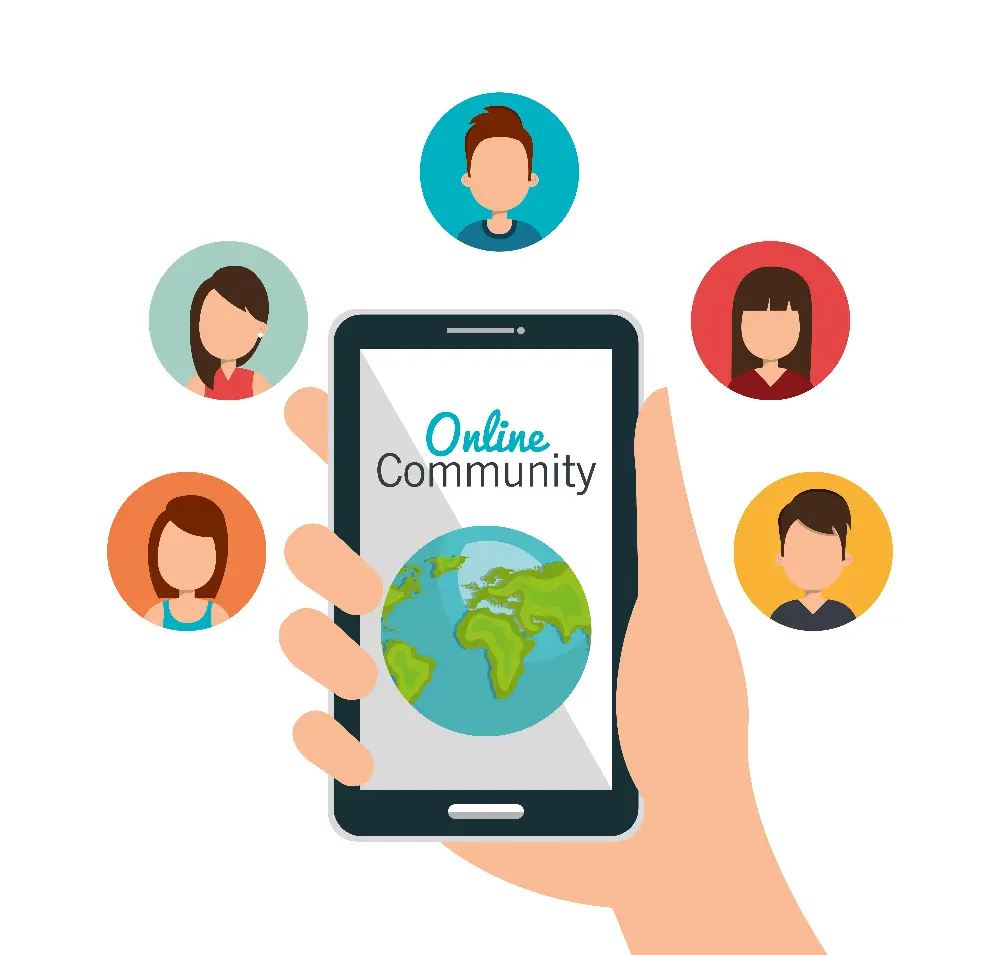
Clinical Communication & Collaboration Software
We provide clinical communication and collaboration software which are designed for healthcare professionals to communicate and collaborate with one another in real-time. This software allows clinicians to communicate patient information, share medical records, consult with specialists, and coordinate care plans, among other things.
This software often includes features such as secure messaging, voice and video conferencing, file sharing, and task management tools.
By using this software, healthcare professionals can communicate more efficiently, reducing the risk of errors and improving patient
outcomes.
Some examples of clinical communication and collaboration software include TigerConnect, Halo Clinical Collaboration Platform, Vocera
Communication Platform, and CareThread.
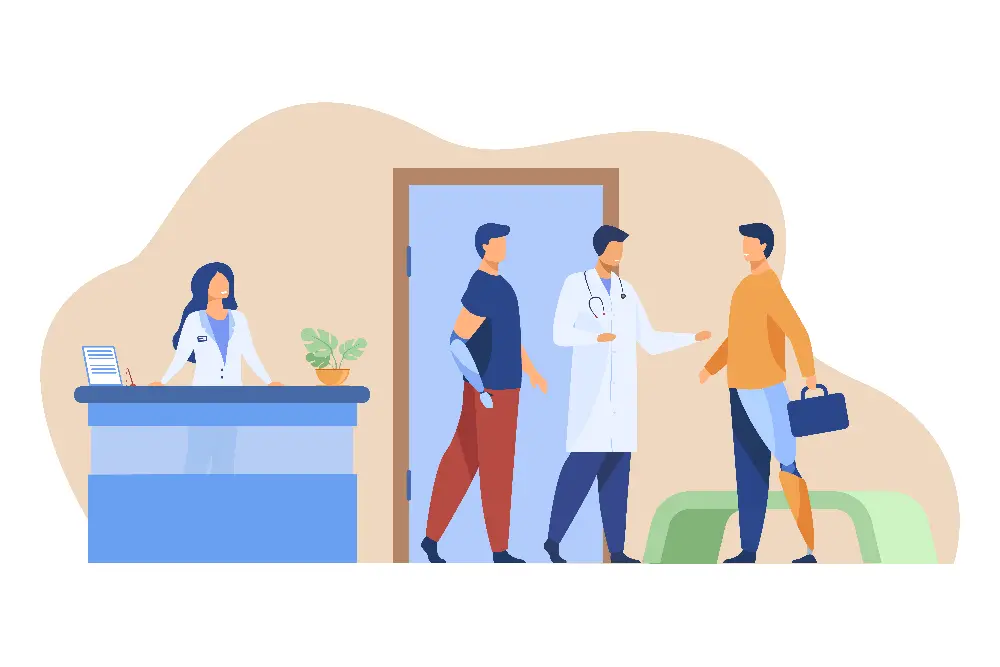
Patient Rounding Apps
We provide patient rounding apps which are mobile or web-based software applications designed to help healthcare professionals manage
and streamline their rounding processes. Rounding refers to the process of regularly checking on patients, assessing their condition,
and addressing any concerns or issues that may arise during their hospital stay.
Patient rounding apps typically allow healthcare providers to document and track patient assessments, create care plans, and
communicate with other members of the healthcare team in real-time. These apps can also provide reminders and alerts for follow-up
tasks and help improve communication and collaboration between healthcare providers and patients.
Patient rounding apps can be used in a variety of healthcare settings, including hospitals, nursing homes, and rehabilitation centers.
Some examples of patient rounding apps include CipherHealth, CareLoop, and MyRounding. By using patient rounding apps, healthcare
providers can improve patient satisfaction, reduce readmission rates, and enhance overall care quality.
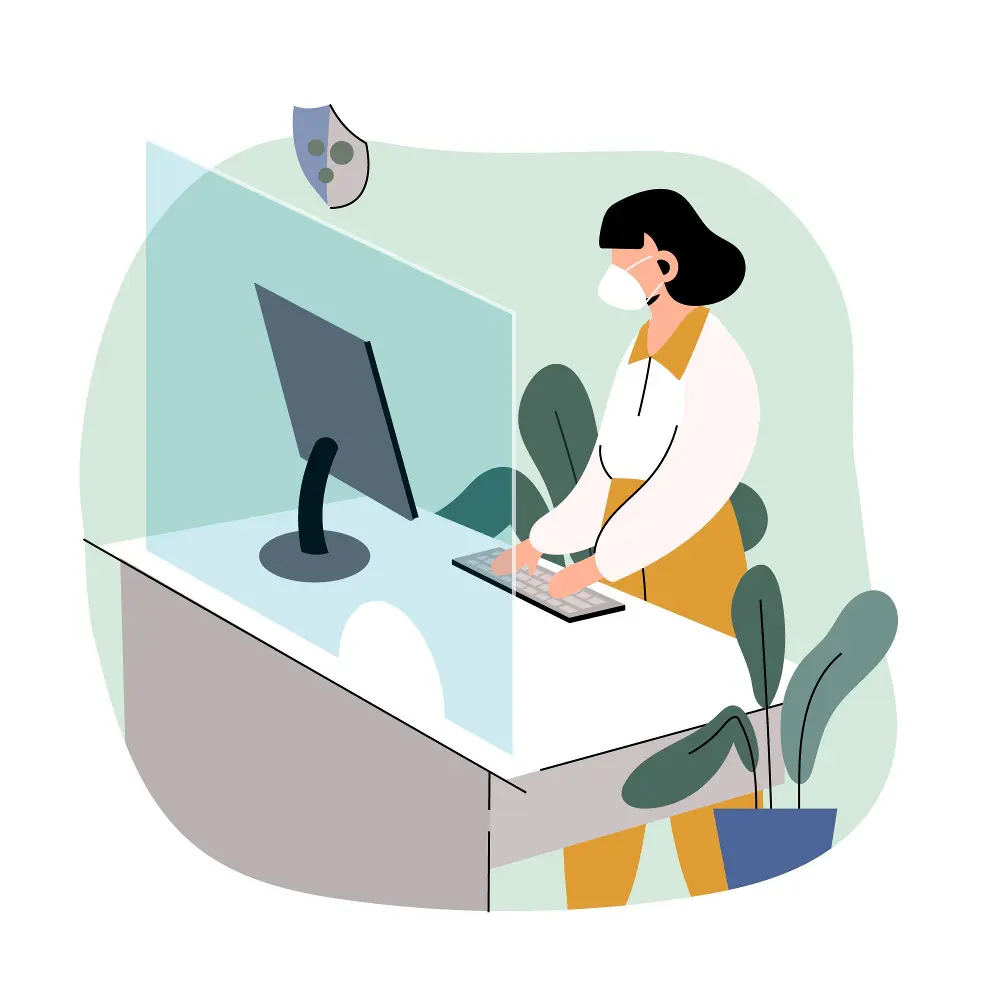
Mobile CPOE Systems
We offer mobile CPOE (Computerized Physician Order Entry) system that enables physicians and healthcare providers to electronically prescribe medication and order tests, procedures, and consultations from a mobile device such as a smartphone or tablet. This system provides a convenient and efficient way for healthcare providers to access patient information and record orders from anywhere, at any time, using a mobile device.
Mobile CPOE systems have become increasingly popular in recent years due to their ability to improve patient safety and reduce
medication errors. By using a mobile CPOE system, healthcare providers can access the most up-to-date information on a patient's
medical history, allergies, and current medications, which can help prevent adverse drug interactions and other potential
complications.
Mobile CPOE systems also offer several other benefits, such as increased efficiency, improved communication between healthcare
providers, and better tracking of patient care. These systems can help healthcare providers save time and reduce the risk of errors by
eliminating the need for paper-based orders and reducing the need for manual data entry.
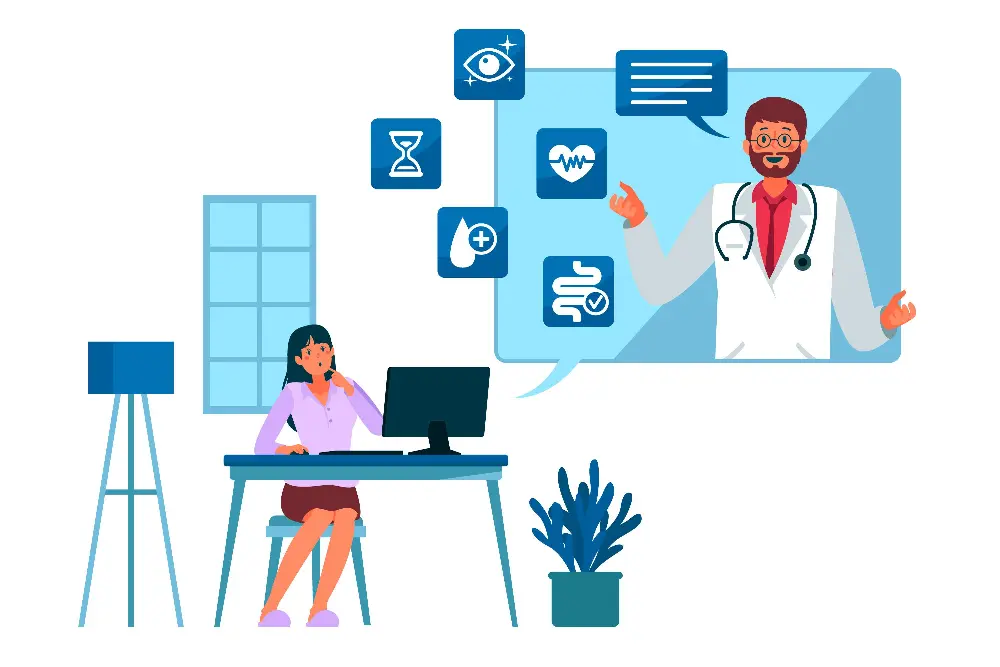
Remote Diagnostics
We offer remote diagnostics for the use of technology to diagnose and troubleshoot problems in equipment or systems from a remote
location. This technology enables technicians and engineers to diagnose and fix problems in machines or systems without having to
physically be present at the location where the equipment is located.
Remote diagnostics can be applied to a variety of industries, such as healthcare, automotive, aerospace, and manufacturing. In
healthcare, remote diagnostics can be used to monitor patients' vital signs and detect abnormalities, allowing for early intervention
and treatment. In the automotive industry, remote diagnostics can be used to identify issues in vehicles and diagnose problems before
they become more severe, reducing the need for costly repairs.
The process of remote diagnostics usually involves sensors and other monitoring devices that are connected to the equipment being
diagnosed. These sensors can collect data on the equipment's performance and send it to a central system, where technicians and
engineers can analyze the data and identify potential issues.
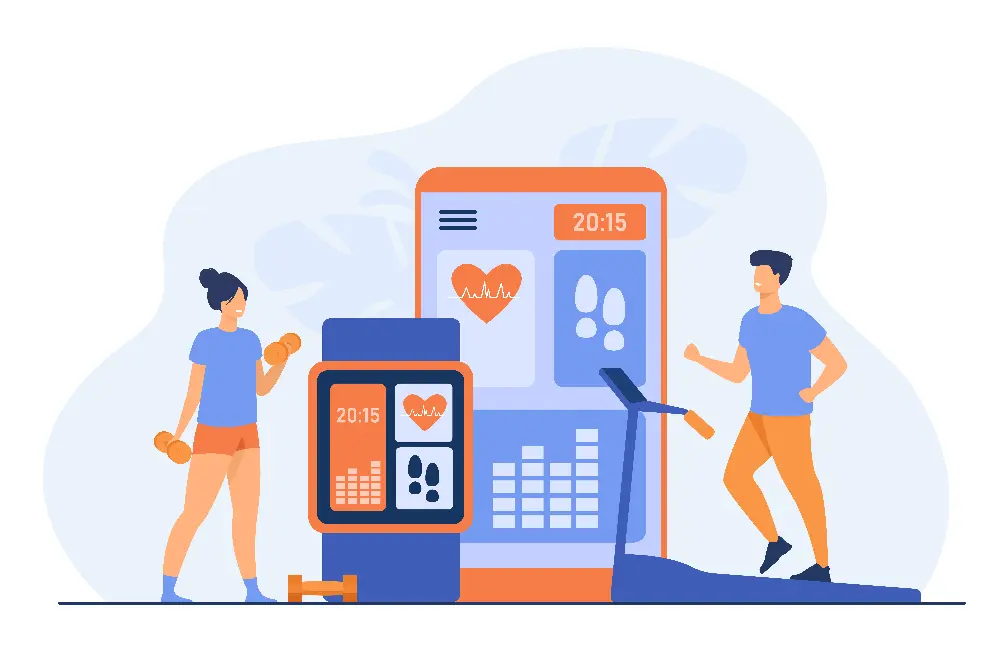
Fitness Apps
We provide fitness apps which are designed to help individuals track, monitor and improve their physical activity, nutrition, and overall health and wellness. These apps can provide a range of features, from tracking steps and calories burned to offering personalized workout plans and nutrition advice.
Fitness apps use various sensors on mobile devices, such as GPS, accelerometers, and heart rate monitors, to track physical activity
and provide real-time feedback. They can also provide users with data-driven insights into their fitness progress, such as calorie
intake, sleep patterns, and heart rate variability.
Fitness apps often feature social networking components that allow users to connect with friends and share their progress, creating a
community of support and motivation. Some fitness apps also offer virtual personal trainers and coaches, providing customized workout
plans and tailored nutrition recommendations based on the user's goals and preferences.
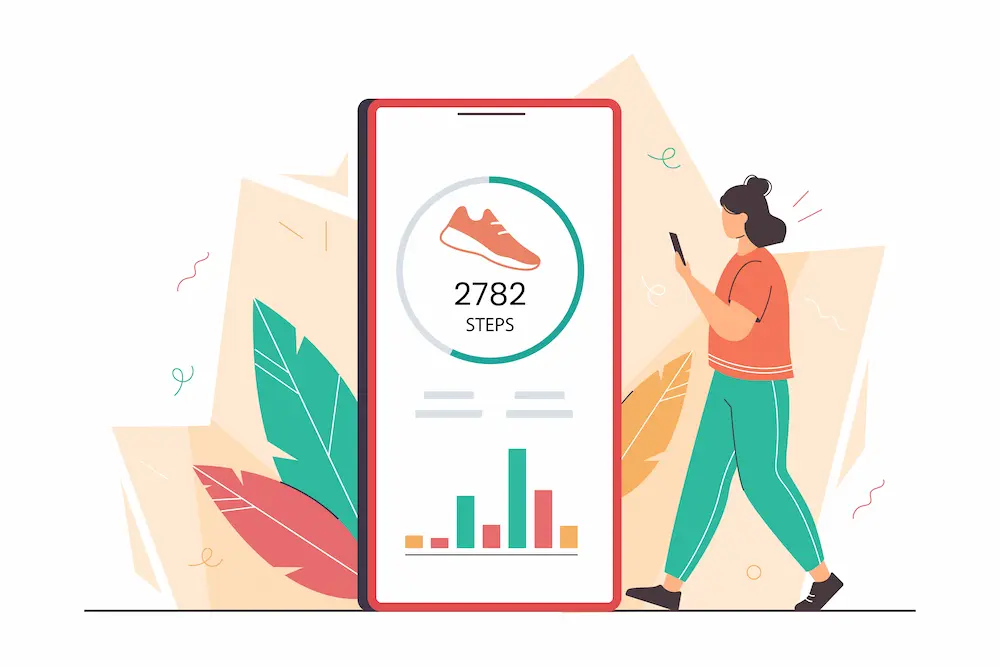
Calorie Counter Apps
We provide calorie counter apps which are designed to help individuals track their calorie intake and monitor their nutritional habits.
These apps can provide a range of features, from logging food and drink consumption to offering personalized diet plans and advice.
Calorie counter apps use a database of nutritional information to provide users with an estimate of the number of calories and other
nutrients in the foods they consume. Users can log their meals and snacks throughout the day, and the app will calculate their total
calorie intake and provide insights into their nutritional habits.
Many calorie counter apps also allow users to set personalized goals for calorie intake, weight loss, or other health-related targets.
The app can provide suggestions for foods that fit within the user's dietary goals and provide insights into how to improve their
nutritional habits.
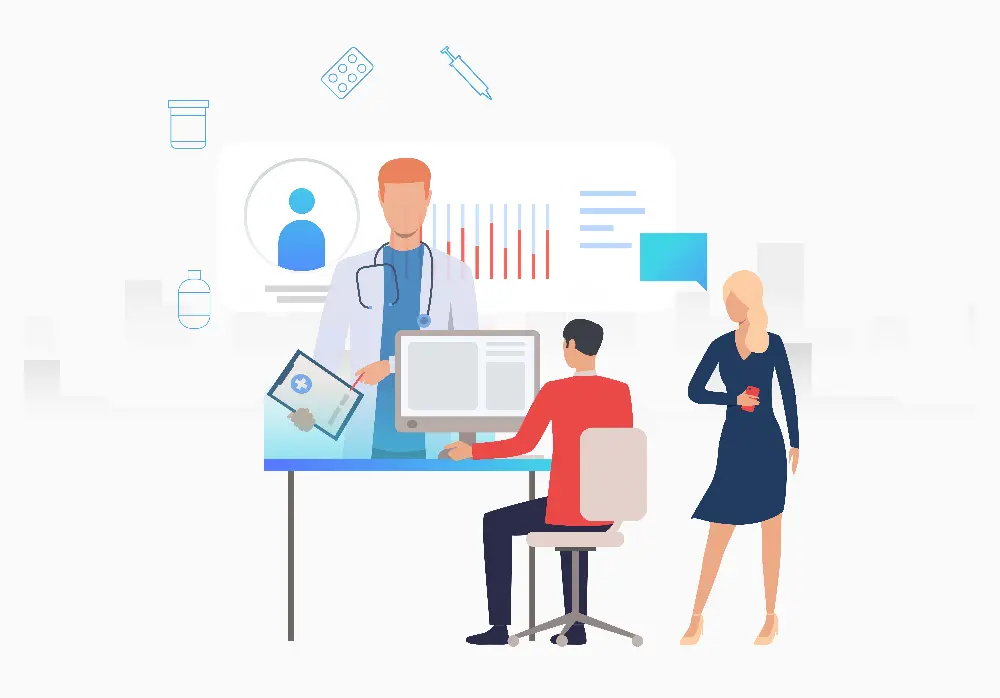
Hospital and Clinic Information System
We offer hospital and Clinic Information System (HCIS) which is used by healthcare organizations and providers to manage and store patient health records, as well as administrative and financial data.
HCIS is a comprehensive system that manages different aspects of healthcare organizations, including patient registration, appointment scheduling, admission, billing, and inventory management. It also includes modules for clinical data management, such as Electronic Medical Records (EMRs), and Laboratory Information Systems (LIS), Radiology Information Systems (RIS), and Pharmacy Information Systems (PIS). The main purpose of a HCIS is to improve the quality of patient care, enhance operational efficiency, and support decision-making processes. By consolidating patient information into a single system, healthcare providers can access complete and accurate patient data, leading to better diagnoses, treatments, and outcomes.